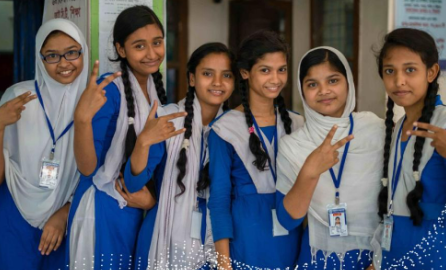It starts with the youth: SRHR education in Sierra Leone

-
Gender marker: G2-Promotes gender equality as a primary objective
-
Period of implementation: 2022 - 2025
-
Amount: EUR 7,055,620 EUR (EU contribution)
-
Geographical area: Sub-Saharan Africa
-
Implementing partners:
-
Health Alert Sierra Leone
-
Links to the project:
-
GAP III’s Areas:
-
Sexual and reproductive health and rights
-
Economic and social empowerment
-
Sierra Leone has a young population of over 7 million people, with adolescents aged 10-19 years making up almost a quarter (24.4%) of the total population. The majority of these young people have limited access to information about their sexual and reproductive health rights (SRHR), especially those living in rural communities, which has resulted in many of them being exposed to sexually transmitted diseases and unwanted pregnancies. Sierra Leone is, sadly, the first country in the world to declare a national emergency on sexual and gender-based violence, following recorded cases of rape and assault. Rape was systematically used as a weapon of war, and as abuses increased, President Julius Maada Bio announced the emergency in 2019. The number of rapes of minors is still a humanitarian disaster.
With co-funding from the European Union, Marie Stopes Sierra Leone (MSSL) and Health Alert Sierra Leone (HASiL) are implementing the Youth for Health project in three districts. The umbrella project also operates in Ethiopia, Ghana, Kenya, Tanzania, and Zambia. It expands access to life-changing SRHR with a focus on reaching marginalised adolescent girls, including those with disabilities, in rural and hard-to-reach areas. The programme is linked to a Team Europe Initiative.
One of the project's key objectives is to align policy demands and actions to work towards a supportive environment for SRHR. This includes increasing the availability of resources (training, education, counselling, commodities, rape kits, etc.) in the public sector and advocating for domestic resource mobilisation. Government ownership is also relevant as Sierra Leone is a signatory to the Maputo Protocol, which commits it to allocating 15% of its health budget to reproductive health and family planning.
There is a particular need for adolescent-focused counselling, referrals, and non-discriminatory sexual and reproductive health information and services. One of the approaches MSSL has taken is to implement 15 school health clubs in three districts, each with ten members acting as peer educators. The school health clubs provide a safe and friendly environment for adolescents to access SRHR information and services, including menstrual health. Finally, to make the school health clubs even more effective, MSSL actively engages school administrators to participate.
As a result of these activities in the first year, the following outcomes can be highlighted:
-
5 million adolescents (aged 10-19) were reached with SRH information, with a focus on the poorest and most marginalised, including adolescents with disabilities in rural and hard-to-reach areas.
-
150 public health facilities supported to provide high-quality, inclusive, and non-discriminatory services.
-
60% increase in unintended pregnancies averted among adolescents in Y4H-supported sites.
-
5% of public sector clients identify as persons with disabilities.
-
6% increase in the domestic budget allocated to SRHR in target countries.
-
10 new and/or existing SRHR policies.
The project has established an annual survey mechanism to monitor these results.
Sexual and reproductive health and rights are among the bedrock of a healthy, happy, and productive life. That is why the EU, MSI Reproductive Choices and partners are happy to use this project to prevent abuse and enhance adolescents' chances of a safer life in Sierra Leone.
“I was afraid to tell my parents about my health because of the myths and misconceptions around teenage sex in my community.” Mabinty Kargbo, a 19-year-old student in Port Loko District.
